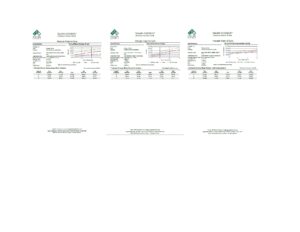As  professionals, we should be prepared to negotiate a compensation package that accurately reflects their value. However, many candidates avoid negotiations because they are uncomfortable or unaware of their market value.
professionals, we should be prepared to negotiate a compensation package that accurately reflects their value. However, many candidates avoid negotiations because they are uncomfortable or unaware of their market value.
If you’re a senior level executive (or even a senior level hiring manager), here’s a method for making sure you never have an offer rejected: Start with a Letter of Intent prior to a formal offer or employment contract. For most executive level searches, we often use the LOI approach early on to outline the basic tenets of what a potential offer would look like. It allows for an early calibration so we don’t get to the finish line and discover that our candidate has wildly divergent expectations on, say, a relocation package to include her 4 classic cars and 35-foot sailboat, or that he is going to need 4 months off to be a contestant on The Bachelor.
As executive recruiters, we see this happen time and time again: not discussing compensation and benefits can lead to remorse or regret after accepting a new position. Don’t be discouraged by the awkward conversation upfront, but set yourself up for long-term success and satisfaction with these 3 tips for negotiating the perfect compensation package for you:
Knowledge is Power
- Research salary ranges with comparable companies for your job description. Good sources include http://www.glassdoor.com; http://salary.com;http://www.payscale.com and https://www.salaryexpert.com.
- Ask your headhunter for a salary report. For our clients and candidates, we have a subscription to https://www.salaryexpert.com and provide a Salary Assessment for each job we work on. Our assessments are specific to the SIC code, city, job title, company revenue and years tenure and percentiles of various salary ranges:

- Ask the Hiring Manager or Human Resources for the salary range of your new position then use your research to determine if your salary offer is competitive and then negotiate your salary based on comparable figures
- Negotiate for benefits after the compensation portions of the job offer are provided. Don’t forget to ask about vacation and sick time (usually lumped together as PTO – Personal Time Off) and other benefits like life insurance, health insurance, tuition reimbursement and other perks that competitive companies are offering.
2. Timing is Everything
- Make a list of what you want before the meeting.
- Immediately after the job offer is extended ask about the benefits offered.Generally, there is a benefits package from the healthcare or PEO provider, which you’ll want to review.
- Point out what you expect and the justification, then simply listen. Many Hiring Managers will be able to make concessions acceptable to your needs. They have most likely gone through an extensive search, and they have an incentive to close the deal with you.
3. Get Creative, and avoid Waging War with a Counter-Offer
- Pick your battles carefully and establish where the company may have room to negotiate.
- If the Hiring Manager is unable to negotiate on salary and basic benefits,then start your career journey by asking for more vacation time, relocation assistance, signing bonus, and/or a performance bonus. And although these inclusions are typical of standard compensation packages which may be offered to everyone, add value to your individualized compensation by maximizing each offer to match your personal worth, ensuring you receive the utmost to realize your long-term career satisfaction.
- Consider having your recruiter negotiate for you. I nearly always insist on this for a few reasons:
- False modesty aside, I’m incredibly talented at negotiating and closing both sides in a win-win situation – and most experienced retained recruiters are as well. In fact, it’s at the 5-yard line when many offers are fumbled and where I believe that we provide the most value.
- It’s often uncomfortable and awkward negotiating with the person you’ll be reporting to. If things get contentious (and they often do) it could sour the first 90 days of the relationship with one or the other feeling like they were strong-armed a bit.
- The more senior the executive, the more apt I am to insist on being the go-between. Not only are the “devil in the details” but if your recruiter has done their job well, the details will have been communicated well before a formal offer arrives and the process is more professional and less stressful for all parties.